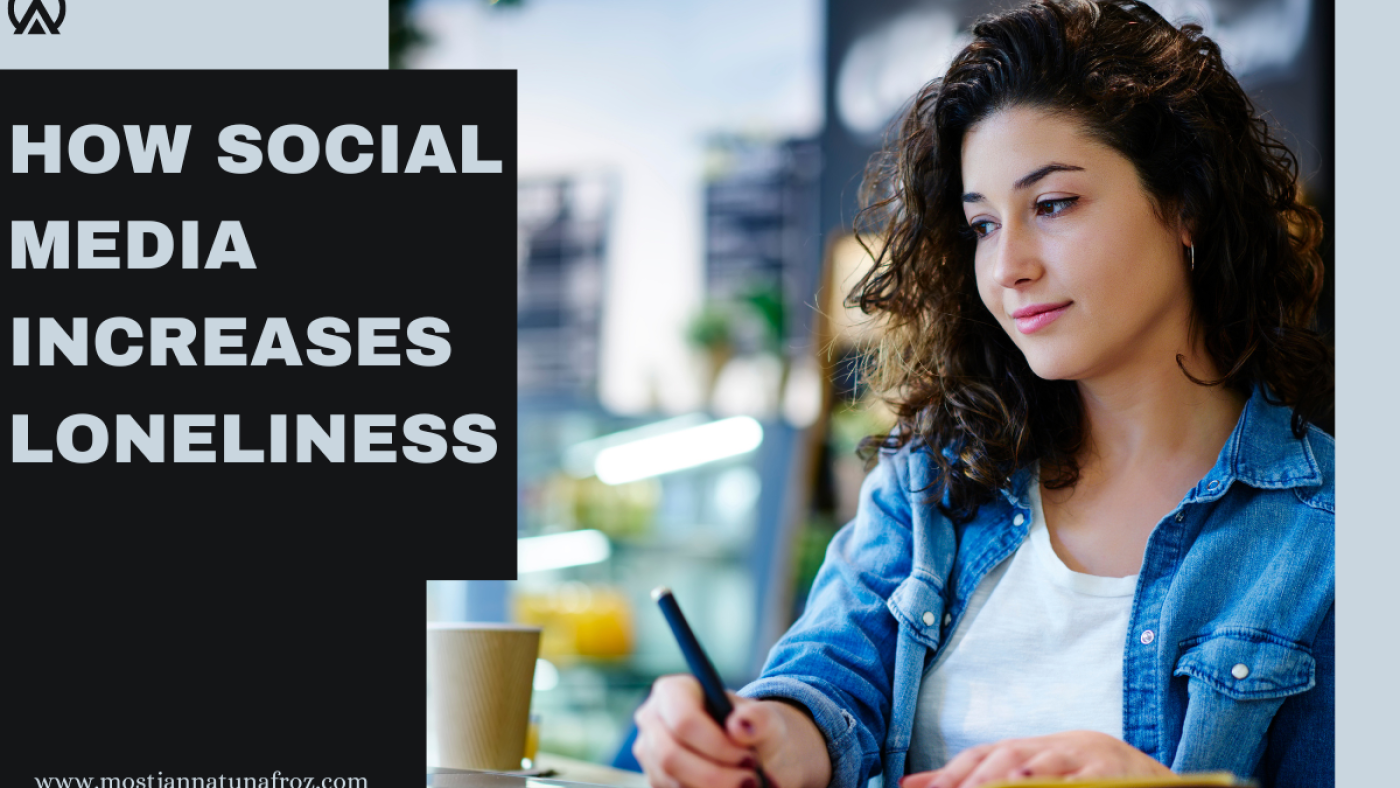If you for a haw social media increases loneliness. In today’s interconnected world, social media has become integral to our daily lives.
From sharing moments with friends to staying updated on global events, platforms like Facebook, Instagram, and Twitter ,facebook snapchat offer many benefits.
However,does social media increase loneliness beneath the surface of likes, comments, and shares lies a paradox: while social media connects us digitally, it often leads to feelings of loneliness and isolation in real life.

Understanding Loneliness
Loneliness is more than being alone; it’s a complex depression anxiety and increase emotional state characterized by emptiness and disconnectedness from others.
It can manifest in various forms, including emotional loneliness (feeling isolated) and social loneliness (lacking meaningful connections).
how to the social media increases depression and loneliness
The Rise of Social Media
Social media makes has revolutionized how we communicate, allowing us to connect with people from around the globe instantly.
Around the world, social media sites like Facebook, Instagram, and Snapchat have become virtual social hubs where individuals share their lives, thoughts, and loneliness increases experiences.
How Social Media Increases Loneliness

Comparison of Virtual Connections with Real-Life Interactions
Does social media increase loneliness and isolation.
while social media provides a sense of connection, it often fails to replicate the depth of mental health, real-life and depression anxiety interactions.
Virtual friendships may lack the emotional intimacy and support found in face-to-face relationships, leading to feelings of loneliness despite having numerous online friends.
Fear of Missing Out (FOMO) and Its Role in Loneliness
The constant stream of curated content on Social media makes can cause envy and feelings of inadequacy, which are usually referred to as FOMO (fear of missing out).
As individuals compare their lives to the highlight reels of others, they may experience heightened loneliness and dissatisfaction with their circumstances.
how social media increases loneliness. social media use increases depression and loneliness study finds.
Social Comparison and Its Effects on Self-Esteem

Does social media increase loneliness and isolation.
Social media lonely scrolling through meticulously curated feeds can distort perceptions of reality, fostering unrealistic expectations and depression anxiet negative self-comparisons .
This perpetual cycle of comparison can erode self-esteem and exacerbate feelings of loneliness as individuals strive to meet unattainable standards.
Isolation Due to Excessive Screen Time
How social media increases loneliness. Excessive use of social media often leads to isolation from real-world experiences and mental health , relationships.
Spending countless hours scrolling through feeds can detract from meaningful interactions with loved ones, resulting in disconnection and loneliness.
Psychological Effects of Social Media
Haw to social media increases loneliness. Many studies have shown the negative consequences of
excessive social media use on mental health, particularly concerning loneliness.
New evidence that social media increases loneliness
Research suggests Many studies have shown the negative consequences of loneliness and depressive symptoms compared to those who use it sparingly.
Physical Health Implications
Research social media often increases loneliness.
In addition to its psychological impact, social media usage can also affect physical health.
Prolonged screen time is associated with sedentary behaviour, contributing to a variety of health problems, including obesity, cardiovascular disease, and musculoskeletal problems.
Social Media’s Impact on Relationships

Despite its ability to connect us with others, social media can strain interpersonal relationships.
Study claims social media increases loneliness.
The superficial nature of online interactions may diminish the quality of communication and intimacy, leading to feelings of loneliness and dissatisfaction in relationships.
Addressing Loneliness in the Digital Age
To counteract social media’s negative impacts on loneliness, it’s essential to adopt healthy usage habits and prioritize offline interactions.
Setting boundaries, engaging in meaningful activities, and asking friends and family for assistance will help lessen feelings of isolation and foster genuine connections.
Conclusion
Lonely people while social media offers unparalleled connectivity, its pervasive influence can contribute to feelings of loneliness and isolation.how social media increases loneliness. software to temporarily block websites
By recognizing the limitations of virtual interactions and prioritizing real-life connections, individuals can reclaim a sense of belonging and fulfilment in an increasingly digital world.
FAQ

How does social media affect mental health?
Use of social media has been connected to some mental health conditions, such as sadness, anxiety, loneliness epidemi, and loneliness, due to factors such as social comparison and FOMO.
What are some strategies for reducing social media-induced loneliness?
About loneliness Limiting screen time, cultivating offline hobbies, and fostering meaningful relationships offline are effective strategies for combating loneliness exacerbated by social media.
Can social media addiction worsen feelings of loneliness?
Excessive reliance on social media can intensify loneliness by replacing genuine human connections with superficial online interactions.
Are there any benefits to using social media in moderation?
When used mindfully, social media can facilitate communication, community-building, and access to valuable resources and support networks.
How can individuals differentiate between healthy and unhealthy social media use?
Healthy social media use involves setting boundaries, prioritizing real-life interactions, and being mindful of its impact on mental and emotional well-being



Add a Comment